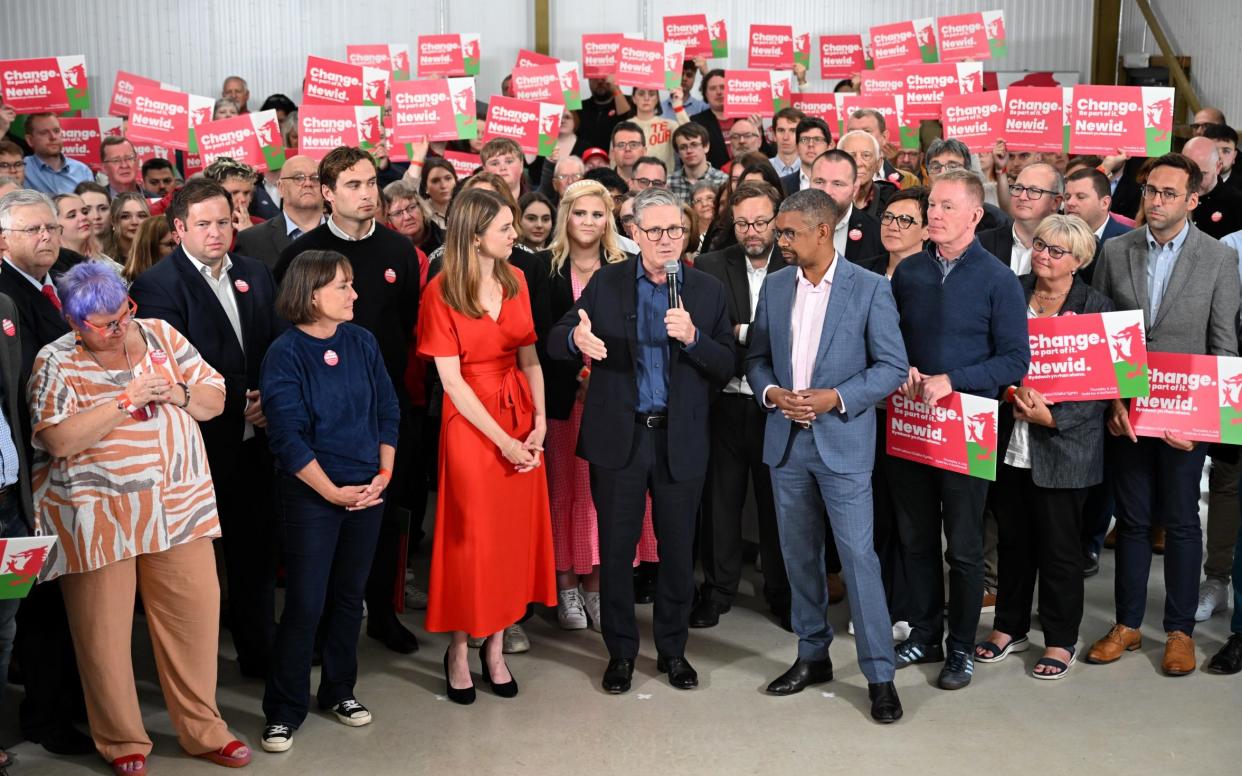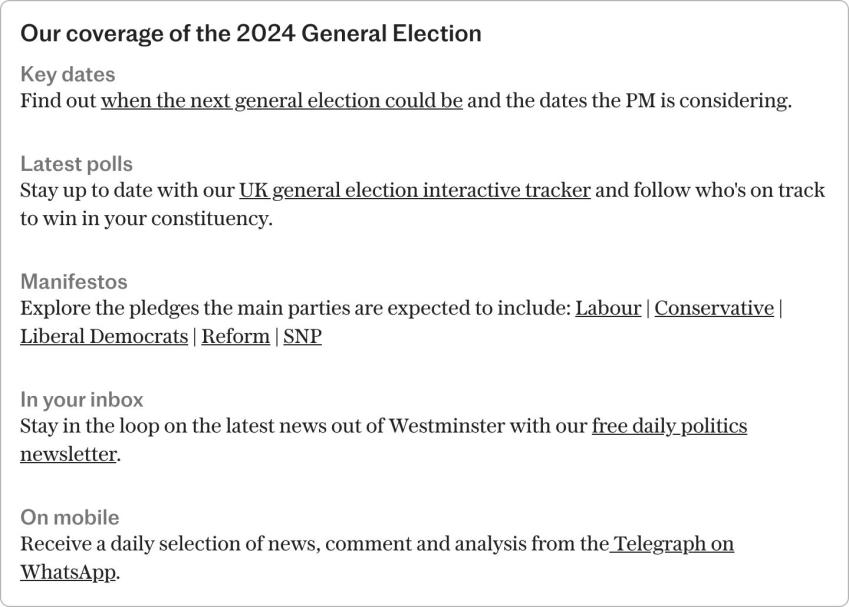Third of Labour support will be from tactical voters

“If you want change, you have to vote for it” has been Sir Keir Starmer’s closing message of the campaign, with the polls set to open in a matter of hours.
While a majority clearly want change, far fewer truly want Labour, Telegraph analysis reveals.
More than one in five voters in Great Britain (22 per cent) plan to vote tactically on Thursday, according to YouGov.
This is especially true of Labour’s backers: almost a third (29 per cent) would rather be voting for someone else, but aren’t doing so to prevent another party from winning – almost always the Tories.
The pollster found the party’s share of national voting intention to be more inflated by tactical voters than any other.
These people are instrumental to the projected landslide coming Labour’s way. YouGov’s final MRP poll – standing for multilevel regression and post-stratification – handed the party 431 seats in Parliament and a majority of 212.
If all of the party’s tactically minded supporters actually voted for their first preference, this tally falls to 310. The Conservatives’ seats, meanwhile, go up from 102 to 188.
Among those voting Labour for tactical reasons, the largest share (42 per cent) would rather be voting Green, 34 per cent for the Liberal Democrats and five per cent for Reform.
In other words, just 71 per cent of those likely to cast a ballot for Labour on polling day actually want the Labour candidate to win.
Even after adding to this the 16 per cent of people voting strategically for other parties in their constituency who would really rather vote Labour – for example, for the Liberal Democrats where they stand a better chance of beating the Conservatives in the South West – very few may actually wake up satisfied on July 5.
Even more so if large numbers do not deem it worthwhile to go to the polls.
With 2019’s relatively high turnout of 67.3 per cent, only 20.1 per cent of the electorate in Great Britain will actually vote Labour and want Sir Keir’s party in power.
But the last time a substantial Labour majority was almost guaranteed – when Sir Tony Blair as prime minister led the party into the 2001 general election – turnout fell to a historic low of 59.4 per cent.
In this scenario, only 17.8 per cent of voters in England, Wales and Scotland are likely to get the government they want.
Because the party in charge in Westminster rules over Northern Ireland as well, and Labour isn’t fielding any candidates there, this ratio falls to 17.3 per cent of UK voters as a whole – about one in six people.


 Yahoo News
Yahoo News 
